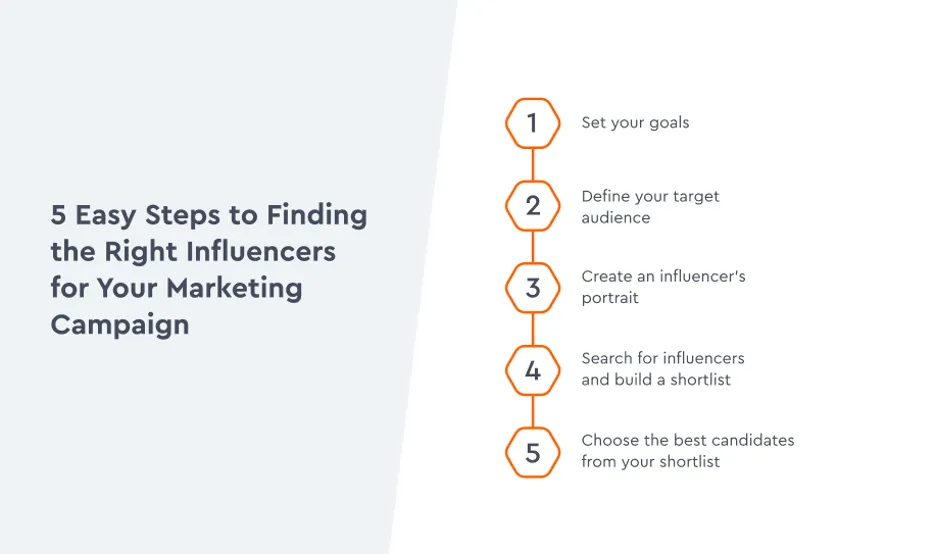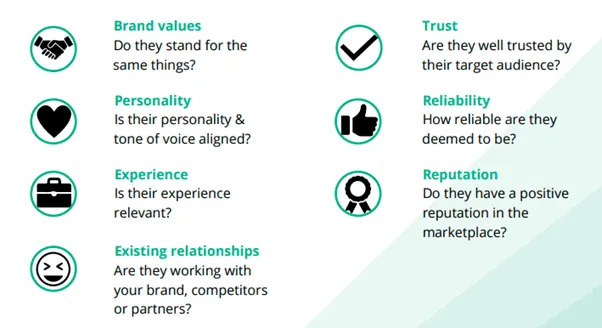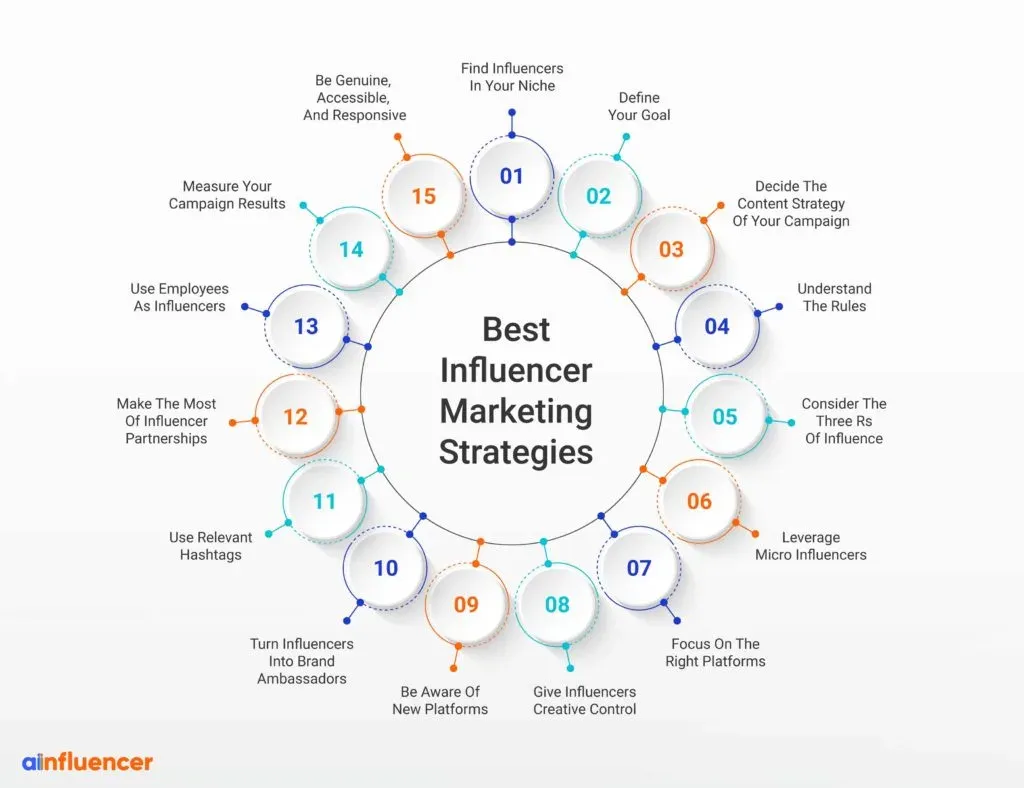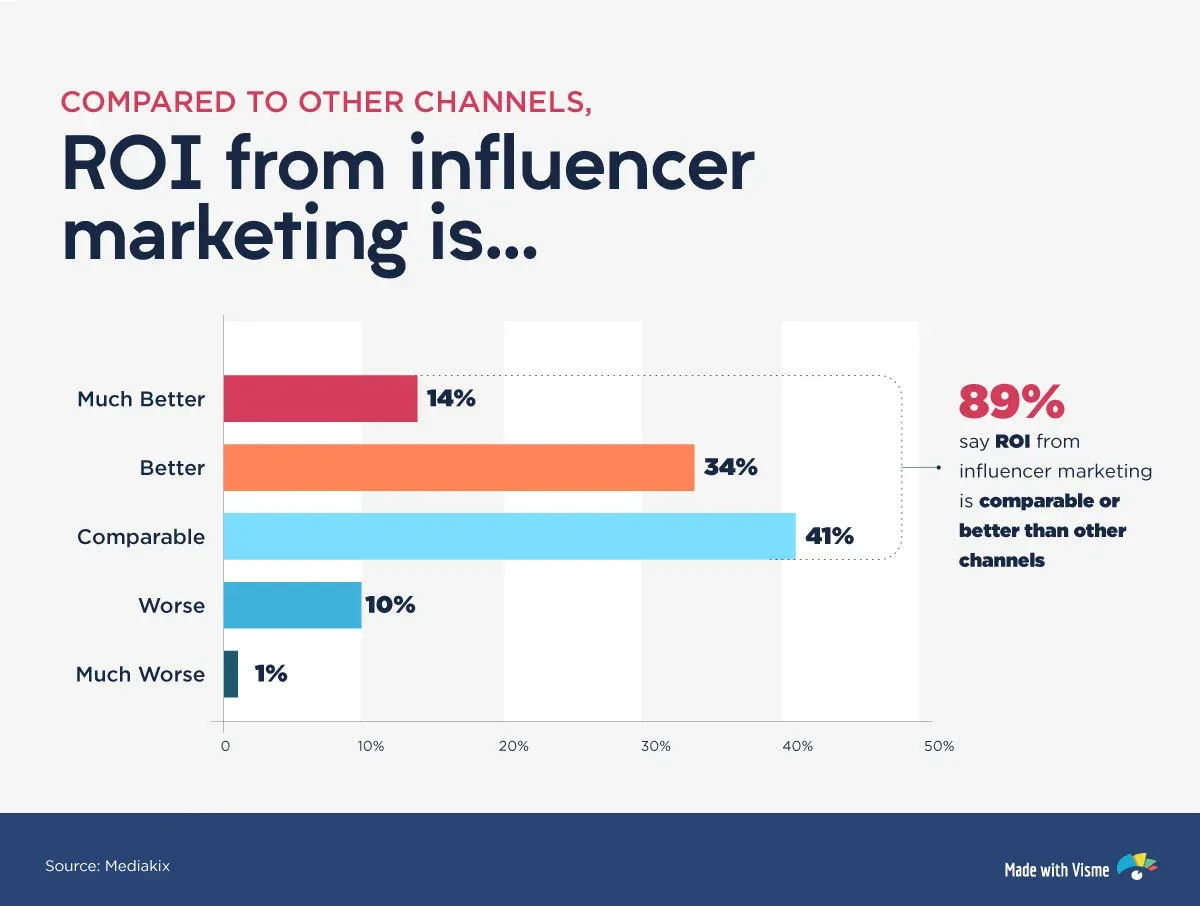Partnering with social media influencers is one of the most innovative ways for e-commerce stores to get their products in front of new customers.
In this blog post, We'll share tips for finding the perfect influencer to partner with.
First, you'll learn why choosing someone who matches your brand is essential. Then, We'll show you the best places to search, like Instagram and TikTok. We'll also explain what to look for in an influencer's stats and following.
By the end, you'll know exactly how to pick an influencer to help your store succeed and understand how to measure if the partnership is paying off.
The right influencer can be the key to boosting your sales and reaching new audiences.
Want to take your e-commerce store to the next level? Read on to discover how smart influencer partnerships in e-commerce marketing work.
Discovering the Right Influencer for Your E-commerce Store

Influencer partnerships in e-commerce marketing have become popular among e-commerce companies trying to boost sales and brand awareness.
Finding the ideal influencer might take a lot of work for your company.
This section will examine the significance of selecting the ideal influencer for your company and provide advice on how to do so.
Importance of the Right Influencer for Your Brand
The success of your influencer partnerships in e-commerce marketing largely depends on choosing the right influencer for your brand.
An influencer who does not align with your brand values or target audience may not deliver the results you're looking for.
Finding an influencer whose content and style complement your brand and resonate with your target audience is essential.
Tools and Platforms for Influencer Search
You can use several tools and platforms to find influencer partnerships in e-commerce marketing for your e-commerce store.
Some of the popular options include:
- Social Media Platforms: Instagram, TikTok, and YouTube are all great platforms to discover influencers for your brand. Use hashtags or keywords to find influencers producing content around your niche.
- Influencer Marketing Platforms: If you don't want to research yourself, you could work with influencer marketing in e-commerce platforms like Hype Auditor or Heepsy to narrow your options.
- Google: A simple Google search can also help you find influencers within your niche.
Key Metrics to Look for While Choosing an Influencer

While discovering the right influencer partnerships in e-commerce marketing, it's essential to choose one based on some key metrics. Some of the metrics that you should closely consider include:
- Engagement rate: The engagement rate of an influencer is the percentage of their followers that engage with their content through likes, comments, and shares.
- Following: The number of followers an influencer has can significantly impact their ability to reach an audience.
- Relevance: Ensure that the influencer you choose has an audience that closely aligns with your target audience.
- Authenticity: Authenticity is an important metric to consider. Look at an influencer's posts and previous partnerships to ensure they have a history of authenticity and building trust with their followers.
Verification of the Influencer
Once you have selected your shortlisted influencer candidates, it's essential to verify them. In addition to checking their engagement rates and followers, some crucial verification steps include:
- Analyzing their previous collaborations
- Checking them on Google searches, social media platforms, and review sites
- Reviewing their case studies or previous projects
- Scrutinizing their follower demographics
Analyzing the Influencer's Following Base to Ensure it Matches Your Target Audience
Finally, it's essential to analyze the influencer's following base to ensure it matches your target audience.
Influencer discovery tools can help you identify the age range, gender, and location of an influencer's followers.
This information can help you make an informed decision on whether or not to partner with a particular influencer.
Now, we will cover the collaborative strategies for influencer partnerships in e-commerce marketing.
Collaborative Strategy with Influencer Partner

Working collaboratively with your influencer partner is crucial to the success of your influencer marketing strategy.
In this section, we will discuss the importance of negotiating with your influencer partner, setting clear goals and benchmarks, and planning for the long term.
Negotiating with the Influencer Partner for Mutual Benefits
When partnering with an influencer, it's important to negotiate mutually beneficial terms.
Remember that it's not just about what the influencer can do for your brand but also what your brand can offer to the influencer.
Consider factors such as the scope of the collaboration, compensation, and the types of content the influencer will create. A fair and transparent negotiation process can establish a strong and successful partnership.
Creation of Clear Goals and Achievable Benchmarks
Setting clear goals and benchmarks is essential for measuring the success of your influencer partnership.
Clearly define what you aim to achieve through the collaboration, whether it's increased brand awareness, higher engagement, or more sales.
Break down these goals into achievable benchmarks that can be measured and tracked. For example, if your goal is to increase sales, set a specific sales target that you expect the influencer partnership to help you reach.
Long-Term Planning with Influencer Partners
While one-off collaborations can be beneficial, long-term partnerships with influencers can provide even more value.
Long-term influencer partnerships in e-commerce marketing offer the opportunity to build a deeper connection with the influencer's audience and develop a consistent brand message over time.
When planning for the long term, consider regular content creation, ambassadorships, and exclusive discounts or offers for the influencer's followers. This strategic approach can lead to stronger brand loyalty and sustained sales growth.
Let us measure the ROI from influencer partnerships in e-commerce marketing.
Suggested Reading:
Measuring ROI from Influencer Partnerships

Once your influencer partnerships in e-commerce marketing are underway, it's essential to measure the return on investment (ROI) to determine the effectiveness of your collaboration.
This section will discuss the steps to measure influencer marketing ROI, the metrics to track and analyze, and the tools and platforms available for performance measurement.
To measure influencer marketing ROI, follow these steps:
- Establish specific objectives: Clearly define your goals and what you want to achieve through the influencer partnership.
- Track referral codes or links: Use unique referral codes or trackable links to monitor the traffic and sales generated from the influencer's content.
- Calculate costs: Determine the total costs associated with the influencer partnership, including compensation, production costs, and additional expenses.
- Evaluate revenue generated: Analyze the increase in sales, conversion rates, and customer acquisition attributed to the influencer partnership.
- Calculate ROI: Compare the revenue generated against the total costs to calculate the influencer marketing ROI using the formula: (Revenue - Costs) / Costs * 100.
Metrics to Track and Analyze
When measuring influencer marketing ROI, consider tracking the following metrics:
- Reach and Impressions: Measure the number of people exposed to the influencer's content.
- Engagement: Analyze metrics such as likes, shares, comments, and saved posts to gauge audience interaction.
- Click-through Rate (CTR): Measure the percentage of people who click on the influencer's links or tagged products.
- Conversion Rate: Track the percentage of website visitors who purchase due to the influencer's content.
Tools and Platforms to Analyze and Measure Performance
There are several tools and platforms available to help you analyze and measure the performance of your influencer partnerships. Some popular options include:
- Google Analytics: Use Google Analytics to track website traffic, conversions, and revenue attributed to the influencer's content.
- Influencer Marketing Platforms: Platforms like Upfluence, Traackr, and Grin provide comprehensive analytics and reporting features to measure the success of your influencer partnerships.
- Social Media Analytics: Utilize built-in analytics features on social media platforms like Instagram Insights, YouTube Analytics, and TikTok Analytics to measure reach, engagement, and click-through rates.
Moving on, you are also expected to know the guidelines that must be followed in influencer partnerships in e-commerce marketing.
Let us dive into it.
Suggested Reading:
Influencer Partnerships: Laws and Guidelines to Follow
In the world of influencer marketing, it's important to follow laws and guidelines to ensure transparency and authenticity.
In this section, we will discuss the aspects of the Federal Trade Commission Act that apply to influencer marketing, similar regulations on influencer marketing globally, and the best practices of influencer marketing.
Aspects of the Federal Trade Commission Act that Apply to Influencer Marketing
The Federal Trade Commission (FTC) Act in the United States requires influencers to disclose their brand relationships when promoting products or services. Below are a few key aspects to remember:
- Disclosure Requirements: Influencers must disclose their brand connections. A material connection could be a financial relationship, such as payment or free products received from a brand.
- Clear and Conspicuous Disclosures: Disclosures should be written in a way that is easy to understand and clearly visible to the audience. For example, using hashtags like #ad or #sponsored can indicate a sponsored post.
- Honest and Genuine Recommendations: Influencers must provide honest and genuine opinions about the products or services they promote. They should not make false claims or endorse products they have not used or do not genuinely support.
Similar Regulations on Influencer Marketing Globally
In addition to the regulations in the United States, many countries worldwide have similar guidelines for influencer marketing. These regulations focus on ensuring transparency and fair advertising practices. Some countries have specific guidelines, such as:
- United Kingdom: The Advertising Standards Authority (ASA) requires influencers to disclose paid collaborations and sponsored content.
- Canada: The Competition Bureau has guidelines for disclosures, ensuring influencers communicate their relationship with a brand.
- Australia: The Australian Association of National Advertisers (AANA) has specific codes that apply to influencer marketing, emphasizing truthful and transparent advertising.
Best Practices of Influencer Marketing
To maintain ethical standards and build trust with your audience, consider the following best practices:
- Clear and Consistent Disclosures: Ensure influencers consistently disclose their brand partnerships across their content. Use noticeable labels or hashtags that indicate sponsored posts.
- Authenticity and Transparency: Encourage influencers to provide genuine and honest opinions about the products or services they promote. This will help establish authenticity and foster trust with their audience.
- Compliance and Documentation: Stay up to date with the regulations in your country and ensure influencers are aware of their obligations. Document their disclosures and maintain records for future reference.
Conclusion
Influencer marketing is a powerful way to grow your e-commerce business. But finding the perfect influencer takes effort.
Search social platforms and use discovery tools to narrow your options. Evaluate engagement, audience fit, and authenticity.
Verify influencers thoroughly before partnering. With the right person on board, set clear goals and track results. Measure reach, interactions, and conversions to understand return.
Ensure legal compliance and transparency to build trust in the long term. Follow these steps to match with an influencer who will boost your brand and increase sales.
With the right strategy, influencer partnerships deliver results for your online store.
Suggested Reading:
Frequently Asked Questions (FAQs)
What are the advantages and disadvantages of influencers?
Influencers can bring authenticity and reach to a brand. Still, they may also demand high fees and lack a genuine connection with their audience, leading to potential authenticity concerns for the brand.
Is influencer marketing good or bad?
Influencer marketing in e-commerce can be highly effective for brands when executed strategically, but it also has potential drawbacks like influencer scandals or audience distrust. Its success relies on proper planning, selecting the right influencers, and maintaining transparency.
Why does influencer marketing matter?
Influencer marketing in e-commerce matters because it enables brands to tap into an influencer's engaged audience, gain credibility and trust, drive brand awareness, and ultimately boost sales. It allows brands to reach customers in an authentic and influential way.
Why does influencer marketing matter in e-commerce?
Influencer marketing in e-commerce matters in e-commerce because it helps cut through the noise of traditional advertising, builds credibility, creates personal connections, and drives consumer purchase decisions.
How can e-commerce brands find the right influencers for partnerships?
E-commerce brands can find the right influencers by considering relevancy to their target audience, engagement rates, previous brand partnerships, and the alignment of values and messaging.


